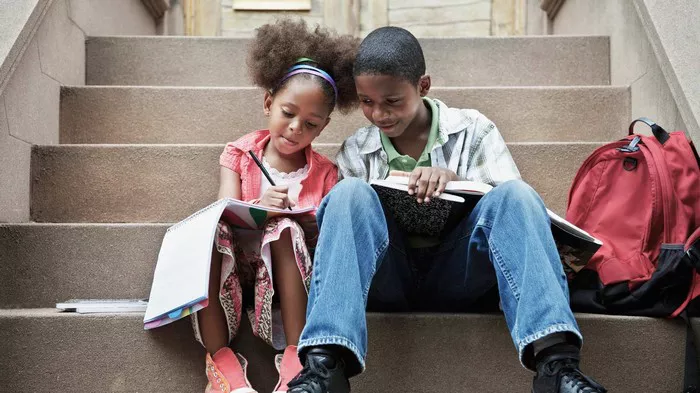Dyslexia, a learning disorder that affects reading, writing, and language processing, exerts profound effects on individuals beyond academic challenges. Among its various impacts, dyslexia significantly influences social interactions, shaping how individuals navigate relationships, self-perception, and societal integration. This article delves into the complexities of how dyslexia shapes social experiences, examining its effects across different stages of life, strategies for support, and the importance of fostering inclusive environments.
Early Social Development and Challenges
From early childhood, dyslexic individuals may encounter hurdles in social development that stem from their struggles with language and communication. Language delays and difficulties in understanding spoken and written language can hinder their ability to engage in conversations, comprehend social cues, and participate in group activities effectively. These challenges often lead to feelings of frustration, isolation, and lower self-esteem, as peers may not understand or empathize with their difficulties.
Impact on Peer Relationships and Peer Perception
As children with dyslexia progress through school, their difficulties with reading and writing become more pronounced, influencing how peers perceive them. Negative stereotypes and misconceptions about dyslexia, such as associating it solely with intelligence or effort, can lead to social stigmatization and bullying. Peers may view dyslexic individuals as less capable or dismiss their contributions, further isolating them from social circles and impacting their sense of belonging.
Adolescence: Identity Formation and Social Challenges
During adolescence, the social implications of dyslexia become intertwined with identity formation and self-image. Dyslexic teenagers often face heightened academic pressures, which can exacerbate feelings of inadequacy and social anxiety. As they become more aware of their learning differences, they may experience internalized stigma and self-doubt, affecting their willingness to participate in extracurricular activities or social events where literacy skills are required.
Educational Settings and Social Exclusion
Educational environments play a crucial role in shaping the social experiences of dyslexic individuals. In mainstream classrooms, where reading and writing tasks are central to academic success, dyslexic students may feel marginalized and overlooked. Without adequate support and accommodations, they may struggle to keep pace with peers academically, leading to feelings of incompetence and exclusion. This academic disparity often translates into social exclusion, as dyslexic students may avoid situations where their difficulties could be exposed or ridiculed.
Adulthood: Transitioning Challenges and Workplace Dynamics
Transitioning into adulthood presents new challenges for individuals with dyslexia, particularly in educational and professional settings. Higher education and employment environments often require advanced literacy skills, posing significant barriers for dyslexic adults. Challenges with reading comprehension, written communication, and time management can affect job performance and career advancement, leading to underemployment or unemployment.
Impact on Relationships and Communication
In personal relationships, dyslexia can impact communication dynamics and interpersonal interactions. Difficulties with reading social cues, organizing thoughts coherently, or recalling words can hinder meaningful connections and lead to misunderstandings. Intimate relationships may also be affected, as partners may struggle to comprehend the challenges associated with dyslexia or provide the necessary support.
See Also: Is Dyslexia Considered a Disability for Social Security Benefits?
Coping Strategies and Support Mechanisms
Despite the challenges posed by dyslexia, individuals can employ various coping strategies and leverage support systems to enhance their social well-being:
1. Early Intervention and Educational Support: Access to specialized educational interventions, such as multisensory learning approaches and assistive technologies, can mitigate academic challenges and bolster self-confidence.
2. Building Self-Esteem and Resilience: Encouraging dyslexic individuals to cultivate their strengths and talents outside of traditional academic domains can foster resilience and a positive self-concept.
3. Advocacy and Awareness: Promoting dyslexia awareness in schools, workplaces, and communities can combat stigma and promote inclusive attitudes towards individuals with learning differences.
4. Peer Support Networks: Engaging with peer support groups or online communities allows individuals with dyslexia to connect with others facing similar challenges, providing validation, empathy, and practical advice.
Creating Inclusive Environments
Addressing the social impact of dyslexia requires a multifaceted approach that emphasizes awareness, accommodation, and acceptance:
Education and Training: Educators and employers should receive training on dyslexia awareness and inclusive practices to create supportive learning and work environments.
Accessible Resources: Providing accessible learning materials, digital tools, and alternative assessment methods can empower dyslexic individuals to demonstrate their knowledge and skills effectively.
Promoting Diversity: Embracing neurodiversity in social and professional settings encourages a culture of acceptance and celebrates the unique strengths of individuals with dyslexia.
Conclusion
In conclusion, dyslexia profoundly influences social interactions and experiences across the lifespan, shaping how individuals navigate relationships, education, and career opportunities. By fostering inclusive environments, promoting awareness, and offering targeted support, society can empower individuals with dyslexia to thrive socially and contribute meaningfully to their communities. Understanding the social impact of dyslexia is not merely about recognizing challenges but also about embracing diversity and creating pathways for equitable participation and success.


